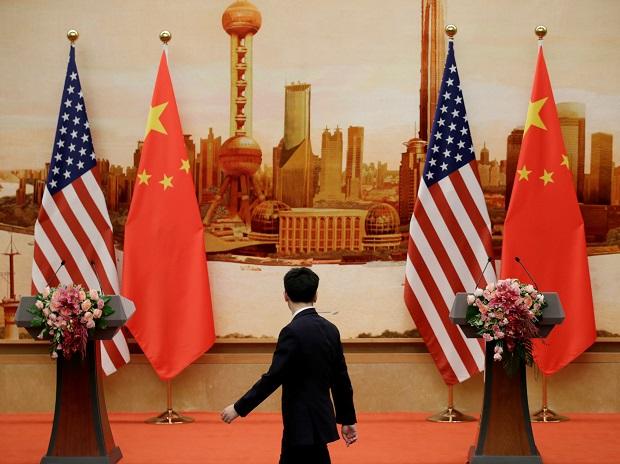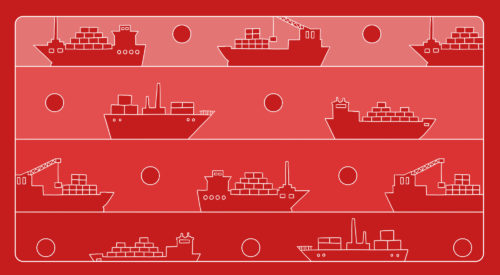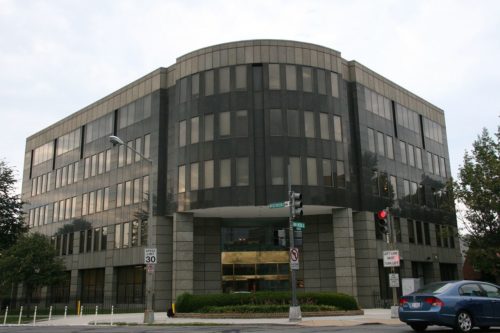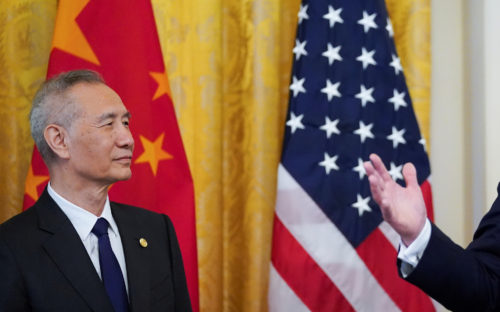Trade war, day 166: China admits it has Canadian hostages

The SCMP notes that “any direct mention of the specific challenges China faced, above all a slowing economy and a tit-for-tat trade war with the US” was “missing” from Xi Jinping’s big speech marking 40 years of reform and opening up. If anything, however, the insistence on Party-led guidance of the economy (and “all tasks”) has slightly dimmed the outlook for the 90 days of trade negotiations.
Also missing was any mention of the ongoing Canada-China hostage situation (latest updates on Access yesterday), which Donald Trump connected to the trade war on December 11. Donald Clarke, an expert in Chinese law, writes in the Washington Post that China has been even more explicit in signaling that the Canadians it has arrested are effectively hostages, to be used as political bargaining chips in the U.S.-China trade and technology conflict:
To call this is a hostage-taking and not a regular criminal investigation is a serious charge. Here it is justified. The critical element of a hostage-taking is that the hostage-taker must tell you that it’s a hostage-taking and what his demands are, otherwise the whole point of taking hostages is defeated. In this case, official and quasi-official Chinese sources have been clear. The Chinese ambassador to Canada has not just admitted it; he has also proclaimed it in an op-ed in the Globe and Mail, saying that those who object to the Kovrig detention should reflect on Canada’s actions. Obviously, if there were no connection, those who object should no more reflect on Canada’s actions than they should reflect on the actions of, say, Saudi Arabia.
That op-ed, published on December 13, beyond politicizing the detentions of Canadians, also called the arrest of Meng “a premeditated political action in which the United States wields its regime power to witch-hunt a Chinese high-tech company out of political consideration.” The Chinese ambassador adds, “The Canadian side detained Ms. Meng in an unreasonable way given she has not received any charges according to Canadian laws.”
- The Canadian foreign ministry pushed back, saying that even though Meng didn’t break Canadian laws, it couldn’t disobey an extradition request from its treaty partner, the U.S.: “I think people need to be very careful when they start to suggest that corners be cut when it comes to the rule of law and when it comes to international treaty obligations,” Foreign Affairs Minister Chrystia Freeland said.
- The hostage crisis is making executives “skittish” about traveling to China from the U.S. or Canada, NPR reports.
While the charges against Huawei CFO Mèng Wǎnzhōu 孟晚舟 are purely about her alleged violations of American sanctions on Iran, her arrest does occur in the broader context of a push-and-pull between the U.S. government and Huawei. The latest news shows Huawei on the offensive:
- “If you have proof or evidence, it should be made known” is what Ken Hu, chairman of Huawei, had to say about allegations of security risk or spying from the company’s technology. “We have never accepted requests from any government to damage the networks or business of any of our customers,” Hu added.
- Huawei “is relying on a team of recently hired American lawyers, who have filed legal ripostes to U.S. agencies, to defend itself from an onslaught of accusations and restrictions emanating from Washington,” the Wall Street Journal reports (paywall).
- The company also “said it would spend $2 billion over the next 5 years to focus on cybersecurity by adding more people and upgrading lab facilities, as it battles global concerns about risks associated with its network gear,” according to Reuters.
- But the Czech government is the latest to air concerns about Huawei, for the exact same reason as cited by American officials: “China’s laws … require private companies residing in China to cooperate with intelligence services, therefore introducing them into the key state systems might present a threat,” said Dusan Navratil, director of the Czech National Cyber and Information Security Agency.
In China, citizens continue to rally to Huawei’s side. A recently-translated essay published on The China Project shows a common Chinese point of view defending Huawei. Other manifestations of support: In Beijing, a bar was seen by Caixin reporter Tanner Brown offering a 20 percent discount to patrons with Huawei phones, and in Henan Province, a park “said it would waive the $9.40 (65 yuan) ticket fee for anyone carrying a Huawei phone,” the BBC says.
Other news in the U.S.-China trade and tech conflict:
- China’s economic influence continues to increase
China signs oil deals with majors as Xi underscores open trade / Bloomberg via Yahoo News
“China signaled its openness for business with a raft of deals that’ll give oil majors including Royal Dutch Shell Plc new opportunities to develop fields in partnership with the nation’s biggest offshore explorer.”
Opinion: China as No. 1 economy to reap benefits that once flowed to U.S. / by Noah Smith in Bloomberg (porous paywall)
“If China were to abolish its capital controls and open its currency to foreign speculation, there’s a good chance the yuan would rise in value, bringing China’s GDP at market-exchange rates closer to its PPP numbers. In other words, the economies of China and the U.S. are now fairly evenly matched in size. But with four times the U.S. population, China has more room to grow.”
“The biggest effect will be that China becomes the leading beneficiary of what economists call agglomeration effects. Agglomeration refers to the tendency of businesses to cluster together in the same region, because one company’s workers are another’s customers.”
US decoupling can’t contain China’s tech rise / Global Times (state media) - TrumpAid
Donald Trump follows through US$4.9 billion aid package for American farmers hurt by trade war with China / SCMP - Commentary
Opinion: China opens doors to foreign companies again / by Andrew Polk in Bloomberg (porous paywall)
“Forty years after China began opening itself up to the outside world, the country increasingly seems to be closed for business. A large and growing contingent of the global business community is convinced that China will never allow foreign companies to compete fairly on the mainland; frustration with Chinese industrial policies and market restrictions is acute. Ironically, those same frustrated foreign firms are in danger of missing out on the best moment in years to invest in China.”
Q&A: Obama’s top Asia adviser explains where U.S. went wrong on China / Caixin (paywall)
An interview with Daniel Russel. Also listen to a Sinica Podcast with him: Danny Russel on the rebalancing and decoupling - Shenzhen feels waves of Meng Wanzhou arrest
China’s billionaire factory Shenzhen faces new risks in Donald Trump era / SCMP
“Chinese stocks dropped earlier this month [since the Meng Wanzhou arrest]…The technology-heavy Shenzhen Composite Index is down about 30 per cent for the year, heading for its worst performance since 2011.”
Previously in The China Project’s trade war coverage:
https://thechinaproject.com/2018/12/13/trade-war-day-161-are-u-s-china-relations-beyond-repair/






